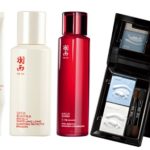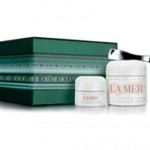Perfumes in China – Scent of A Good Future
Perfumes in China are slowly being introduced across the entire country. The unique cultural roots attached to perfumes embodies a challenge to perfume developers and sales unpredictable. There’s a false perception that perfume is a new thing in China, but it’s based on a technicality; perfumes are a new thing, but fragrances aren’t. Rather than using perfumes, ancient Chinese culture used to burn incense or fragrant herbs, but according to experts specialising in historical Chinese chemistry, personal fragrances (effectively perfumes) had an important part to play during the Sui and the Song dynasties as nobles competed for the best scents.
In China, the largest markets are predictably located in the most developed cities, Beijing and Shanghai. Guangdong province captured the largest market share for perfumes thanks to a large scale production of local perfume brands; Guangdong, Jiangsu and Zhejiang provinces are producing the newest perfumes in China. Since 2009, the perfume industry has been growing at an accelerating pace. Between 2009 and 2013, the growth rate grew from 15.5% to 22.1%. This huge development enabled some perfumes to achieve a growth of 28% and triggered $13.49 billion in perfumes sales in 2013.
Consumers of perfumes in China
Perfumes in China are closely linked to luxury. The product is a premium product for citizens, as they are sold for between $80 and $160 for 50 ml bottles. Most perfumes are luxury oriented, giving foreign brands an immediate competitive advantage over local perfume brands simply due to the perceived exoticism and sophistication. The competition is nevertheless very high among multinationals as in China, two thirds of luxury perfumes are foreign brands. Local brands are therefore currently forced to restrict themselves to a lower price bracket, ranging from between $12 and $40.
The largest perfume consumer segment in China is urban women between 30 and 50 years old, as they have the disposable income to spare. It has been shown that close to 300 new perfumes enter the global market every year, and their number is increasing by 4-6% every year, but as is reflected worldwide, male perfumes in China are the least developed, with 34% intended for men. The male perfume market remains undeveloped and has a large potential growth since in China, where luxury has historically been an industry dominated by male sales. While it’s unlikely to match the growth of women’s scents, there is certainly an opportunity. Currently, men aren’t interested by perfumes as much as women because of their stressful life style in China but studies show Chinese men appreciate the light, relaxing and simple smells of cologne. A men’s perfume targeting men with an appropriate and tailored marketing strategy would certainly appeal to the growing urban middle class.
Trends of perfumes in China
Foreign brands selling perfumes in China are enjoying industrial experience, smell preferences expertise and international product image. Non-chinese brands only account for 27.7% of market share in China. Although their market share is growingly steadily (from 24% just a few years ago), their growth is still far from being considered a threat to multinationals.
Apart from products at highlighting status and sophistication, the Chinese are searching for products that are capable of satisfying multiple needs at the same time. As a result, multifunctional perfumes are becoming popular amongst all segments, especially when they are associated with appreciated perfume brands. Six God Toilet Water, for example, got great returns by selling a refreshing, mosquito repulsing perfume. Innovative fragrances with functions that improve quality of life or have health benefits are therefore a new and exciting segment in China. The functionality aspect is a key element for appealing to the Chinese consumers, as seen in the similarly disruptive “functional drinks” in the beverage industry in China. Furthermore, green products (perceived as environmentally friendly) are particularly well received among urban mid and upper class consumers.
Preferences change with trends very fast in China and smell must be adapted to the Chinese market. Currently, fresh and slightly fruity perfumes in china are the most fashionable among women: physiological and psychological tests show Chinese people prefer light weighted and simple smells and don’t like overly sweet perfumes. In China, women particularly like flower smells and men prefer fresh ones.
Timing & Strategy
In Western countries, new perfumes are often launched with a heavy marketing push. Celebrities promote a product developed by specific perfumeries; however, this pattern doesn’t guarantee success on the Chinese market. The major differentiating factor in the Chinese market is that more than 70% of perfumes purchased by the Chinese are given as a gift. Meaning, only 30% of buyers buy perfumes for themselves and promotion strategies need to be very different. Perfumes as a gift don’t facilitate customer relationship and loyalty since the brand was indirectly introduced to the end consumer through the gift-giver. As an example, in China, Valentine’s day drives 30% of annual perfumes sales. Perfumes are nearly only bought for special events. Perfumes in China with a romantic association reach even higher ratios for Valentine’s day than other brands. Mother’s and father’s day bring in a further 15% of annual perfume sales. During those special days, marketing strategies based on this indirect introduction are essential for sales. By broadly emphasizing the high value of gifting a perfume, brands can encourage shoppers to select their brand. Having been introduced to it, the final recipient will hopefully buy a new perfume from the same brand, though it will take a few years before perfume buying is a mainstream practice.
International perfume firms are mostly cutting costs by importing their original products to China and then dealing with the packaging in China. Behavioural analysis has shown couples perfumes in China are becoming very successful. Just like couples enjoy wearing matching clothes in China, Chinese couples are increasingly buying couple perfumes, particularly attracted by packaging that highlights this connection.
Follow us on Twitter to learn more about Chinese perfumes:
Battle of the #Bakeries: How Companies Compete in the #Macaron Market: https://t.co/Sm0s7SAGSo @iammissmacaroon @LAtelierBaillet pic.twitter.com/QDRsePfCDS
— Daxue Consulting (@DaxueConsulting) November 23, 2017















